Filter by
Self-tracking
People keep track. In the eighteenth century, Benjamin Franklin kept charts of time spent and virtues lived up to. Today, people use technology to self-track: hours slept, steps taken, calories consumed, medications administered. Ninety million wearable sensors were shipped in 2014 to help us gather data about our lives. This book examines how people record, analyze, and reflect on this data, l…
- Edition
- -
- ISBN/ISSN
- 9780262334693
- Collation
- 1 online resource (xi, 233 pages) :illustrations.
- Series Title
- -
- Call Number
- -
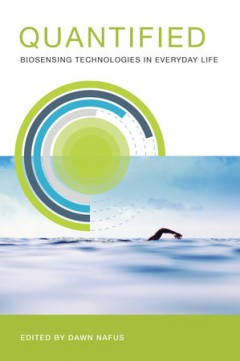
Quantified :biosensing technologies in everyday life
Today anyone can purchase technology that can track, quantify, and measure the body and its environment. Wearable or portable sensors detect heart rates, glucose levels, steps taken, water quality, genomes, and microbiomes, and turn them into electronic data. Is this phenomenon empowering, or a new form of social control? Who volunteers to enumerate bodily experiences, and who is forced to do s…
- Edition
- -
- ISBN/ISSN
- 9780262334549
- Collation
- 1 online resource (xxxi, 243 pages) :illustrations
- Series Title
- -
- Call Number
- -

Radiobiology Textbook
This open access textbook focuses on the various aspects of radiobiology. The goal of radiobiological research is to better understand the effects of radiation exposure at the cellular and molecular levels in order to determine the impact on health. This book offers a unique perspective, by covering not only radiation biology but also radiation physics, radiation oncology, radiotherapy, radioch…
- Edition
- -
- ISBN/ISSN
- 978-3-031-18809-1
- Collation
- XXVII, 667
- Series Title
- -
- Call Number
- -

Bio-Inspired Information Pathways
This open access book offers a timely and comprehensive review of the field of neurotronics. Gathering cutting-edge contributions from neuroscientists, biologists, psychologists, as well as physicists, microelectronics engineers and information scientists, it gives extensive information on fundamental information pathways in selected nervous systems. It also highlights their relevance as buildi…
- Edition
- -
- ISBN/ISSN
- 978-3-031-36704-5
- Collation
- XIII, 433
- Series Title
- -
- Call Number
- -

Agricultural Implications of Fukushima Nuclear Accident (IV)
This open access book presents the findings from on-site research into radioactive cesium contamination in various agricultural systems affected by the Fukushima Daiichi Nuclear Power Plant accident in March 2011. This fourth volume in the series reports on studies undertaken at contaminated sites such as farmland and forests, focusing on soil, water, mountain, agricultural products, and animal…
- Edition
- -
- ISBN/ISSN
- 978-981-19-9360-2
- Collation
- XIII, 276
- Series Title
- -
- Call Number
- -
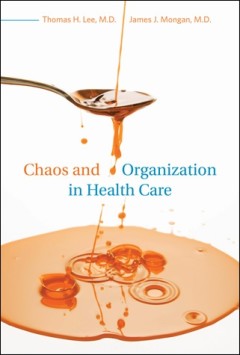
Chaos and Organization in Health Care
Two leading physicians' prescription for solving our health care problems: organizing the fragmented system that delivers care.One of the most daunting challenges facing the new U.S. administration is health care reform. The size of the system, the number of stakeholders, and ever-rising costs make the problem seem almost intractable. But in Chaos and Organization in Health Care, two leading ph…
- Edition
- -
- ISBN/ISSN
- 9780262259033
- Collation
- 1 online resource (xv, 278 pages) :illustrations
- Series Title
- -
- Call Number
- -
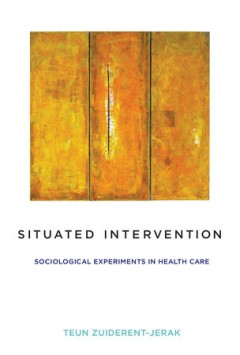
Situated Intervention: Sociological Experiments in Health Care
This work considers the question of how the direct involvement of social scientists in the practices they study can lead to the production of interesting sociological knowledge. It draws together two activities that are often seen as belonging to different realms: intervening in practices and furthering sociological understanding of them.OCLC-licensed vendor bibliographic record.
- Edition
- -
- ISBN/ISSN
- 9780262329439
- Collation
- 1 online resource (xi, 232 pages).
- Series Title
- -
- Call Number
- -
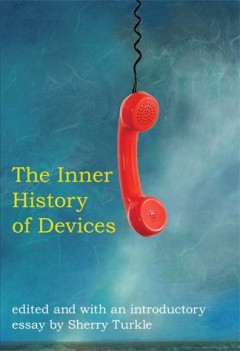
The Inner History of Devices
"For more than two decades, in such landmark studies as The Second Self and Life on the Screen, Sherry Turkle has challenged our collective imagination with her insights about how technology enters our private worlds. In The Inner History of Devices, she describes her process, an approach that reveals how what we make is woven into our ways of seeing ourselves. She brings together three traditi…
- Edition
- -
- ISBN/ISSN
- 9780262285247
- Collation
- 1 online resource (x, 208 pages)
- Series Title
- -
- Call Number
- -
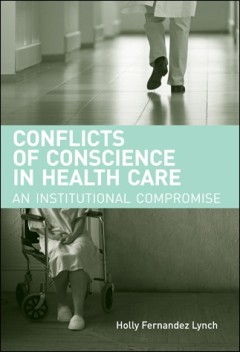
Conflicts of Conscience in Health Care: An Institutional Compromise
Holly Fernandez Lynch presents a balanced proposal that protects both a patient's access to care and a physician's ability to refuse to provide certain services for reasons of conscience.OCLC-licensed vendor bibliographic record.
- Edition
- -
- ISBN/ISSN
- 9780262278720
- Collation
- 1 online resource (xiv, 345 pages).
- Series Title
- -
- Call Number
- -
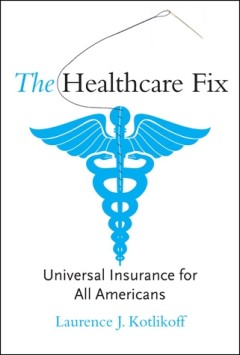
The Healthcare Fix: Universal Insurance for All Americans
A simple, straightforward, and foolproof proposal for universal health insurance from a noted economist.The shocking statistic is that forty-seven million Americans have no health insurance. When uninsured Americans go to the emergency room for treatment, however, they do receive care, and a bill. Many hospitals now require uninsured patients to put their treatment on a credit card which can sa…
- Edition
- -
- ISBN/ISSN
- 9780262277549
- Collation
- 1 online resource (116 pages)
- Series Title
- -
- Call Number
- -
 Computer Science, Information & General Works
Computer Science, Information & General Works  Philosophy & Psychology
Philosophy & Psychology  Religion
Religion  Social Sciences
Social Sciences  Language
Language  Pure Science
Pure Science  Applied Sciences
Applied Sciences  Art & Recreation
Art & Recreation  Literature
Literature  History & Geography
History & Geography